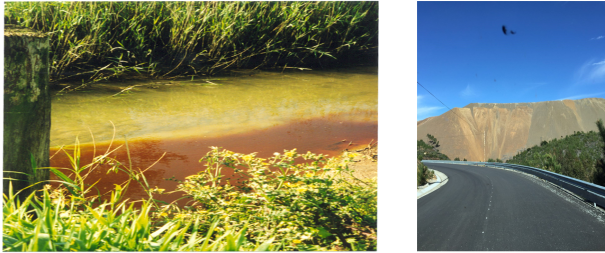UCP celebrates World Environment Day
Today is World Environment Day, created by the United Nations General Assembly in 1972, after the first major world conference on the environment.
On this day, the Universidade Católica Portuguesa presents one of the initiatives of the Escola Superior de Biotecnologia: the project "PhytoEnergy". As a teaching unit and agent responsible for change, ESB has Sustainability as an essential value, being this already one of the central pillars of the research developed in its Research Centre, where it has a research group totally dedicated to the theme Environment and Resources.
PhytoEnergy – Decontaminating degraded soils, producing sustainable energy and increasing the available agricultural area
The raw materials used in the production of biofuels are often plants grown on agricultural land, which means that they are no longer available for food purposes.
The PhytoEnergy project aims to provide solutions for growing biomass on contaminated soils (figure 1 and 2) - instead of agricultural soils - freeing up agricultural area while promoting the gradual decontamination of these soils.
It also intends to follow an innovative integrated strategy, with the use of all parts of the plants (maize and sunflower) for the creation of various energy products, while maximising the gains from the remediation of contaminated soils.
The project proposes to carry out the optimisation of oil extraction while the straw (stem and leaves) will be used to optimise the fermentation to bioethanol. The extracted oil and the resulting bioethanol will then be used to optimise biodiesel production.
Besides this optimization, the sustainability of the processes and the quality of the products are being studied, in order to evaluate the potential contribution of this biomass, derived from the phytoremediation of contaminated soils, as an alternative to complement other raw materials in the production of biofuels, thus being able to implement these processes at an industrial level.
Lastly, the effluents resulting from the processes used in the production of oil, bioethanol and biodiesel, as well as other possible residues, will be used for further conversion into biogas through anaerobic digestion, with possible application of the final digestate as fertiliser and thus achieving the full valorisation of this biomass.
For Ana Marques, researcher at the ESB Research Centre: "It is encouraging that there are no significant differences, in terms of contamination, between oil and bioethanol extracted from plants grown in contaminated soils, compared to agricultural soils. As for the production of Biodiesel, the yield is still minimal, but the important thing is the possibility to produce it."
This project is coordinated by the Universidade Católica Portuguesa in partnership with the Faculdade de Engenharia of the Universidade do Porto and has the financial support of FCT - Fundação para a Ciência e a Tecnologia through the European Regional Development Fund (FEDER) through the Operational Programme Competitiveness and Internationalisation.
Get to know the results of some of the research projects of the Escola Superior de Biotecnologia, related to the environmental cause, here.


